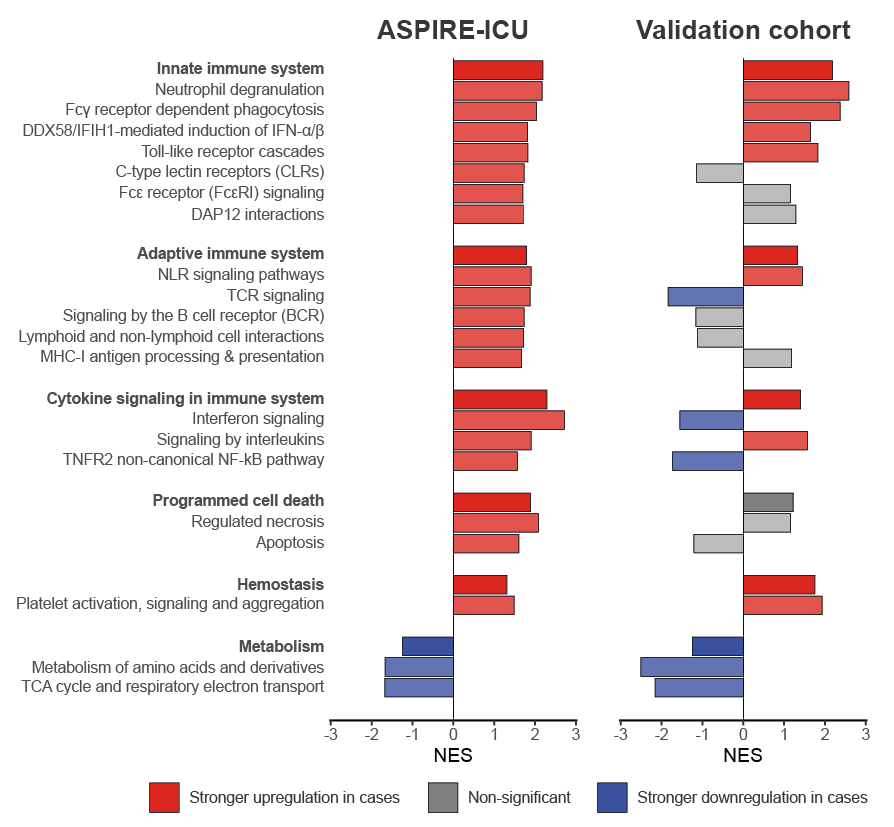Abstract
Background
The immune response plays a role in the development of an ICU-acquired pneumonia, but data on the longitudinal blood transcriptomic response are limited.
Aims
We aimed to investigate the blood leukocyte transcriptome in patients who develop ICU-acquired pneumonia (cases) and those who do not (controls). We hypothesized broad dysregulation of immune pathways in cases.
Methods
In critically ill trauma and surgery patients, blood RNAseq data was collected at baseline, day 7 and pneumonia diagnosis (event). We performed gene set enrichment analysis at baseline, at event (cases) vs day 7 (controls), and longitudinally using linear mixed models with an interaction term between sampling time and study group. Results were validated in an independent external cohort. We calculated immune dysfunction-related RNA signatures.
Results
Our cohort had 117 cases and controls each, with similar baseline characteristics. Baseline pathway analysis showed innate immune pathway upregulation and adaptive immune and cytokine signaling pathway downregulation in cases. The event vs day 7 comparison yielded similar results, except for upregulated cytokine signaling pathways in cases. Figure 1 shows the longitudinal response. Cases had higher SRSq and MS1 scores at baseline and event.
Conclusions
Patients developing ICU-acquired pneumonia exhibit distinct transcriptional responses, marked by enhanced upregulation of inflammation and hemostasis pathways.
